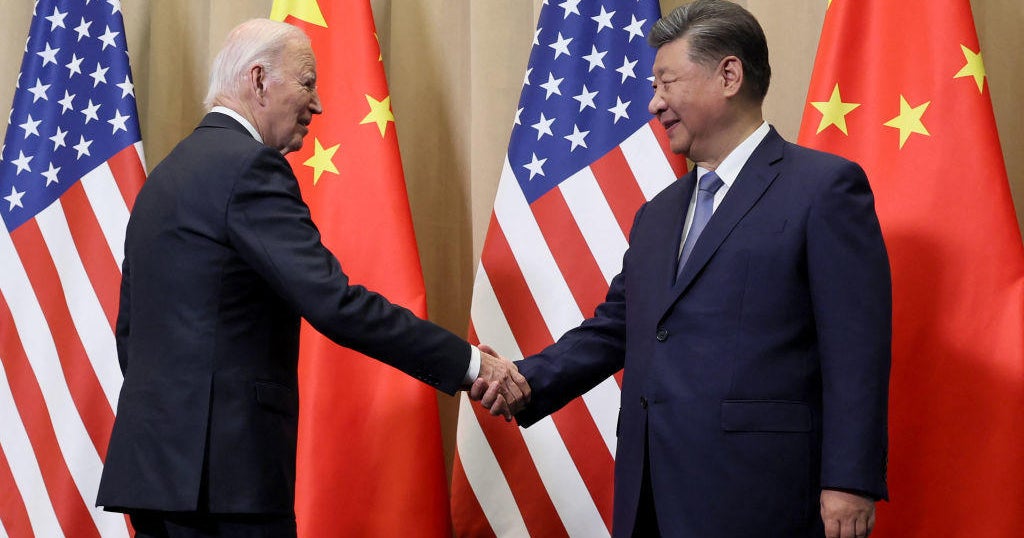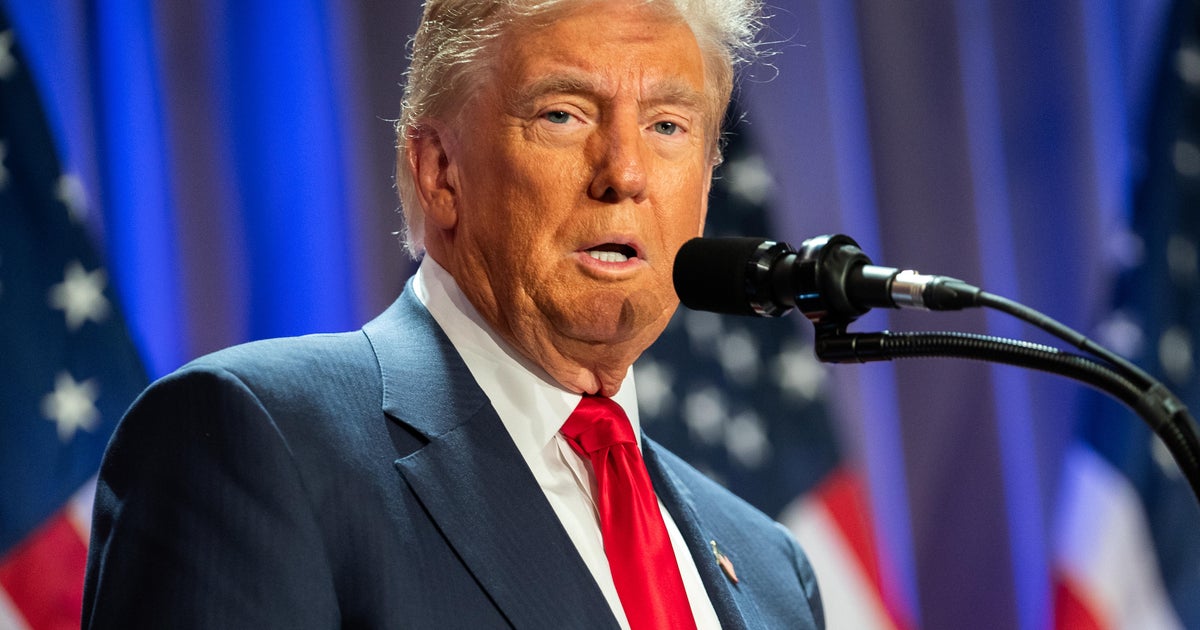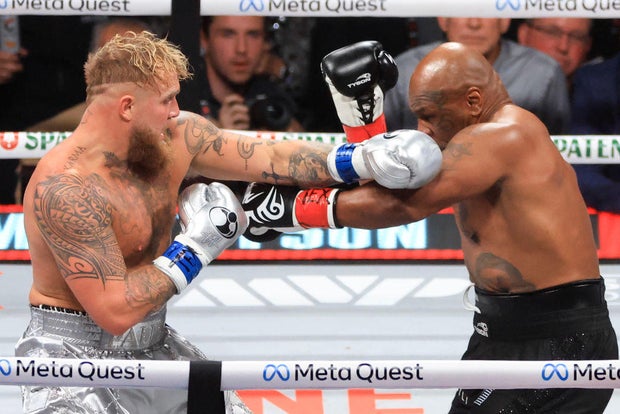CBS News
3 home equity moves to make before the July Fed meeting

Getty Images
Home equity loans and home equity lines of credit (HELOCs) have been two of the most cost-effective borrowing options to explore in recent years. Thanks to the home in question serving as collateral, lenders have offered borrowers significantly lower interest rates than they otherwise would have been secured with alternative options like credit cards and personal loans.
The timing surrounding a home equity loan application, however, is critical to get right. And with a consistently cooling inflation rate (the latest report showed it dropping again in June) and the next Federal Reserve meeting to discuss interest rates set to begin on July 30, now could be a smart time to pursue this unique credit option.
However, borrowers will need to take a strategic approach to reduce costs and secure a low rate. Below, we’ll break down three smart home equity moves homeowners should make before the July Fed meeting begins.
Start by seeing what home equity loan rate you could secure online now.
3 home equity moves to make before the July Fed meeting
The average homeowner has around $300,000 worth of home equity right now. Here are three smart ways they can go about accessing with the next Federal Reserve meeting looming:
Shop for lenders
While rates may formally be cut in September, an official reduction in the federal funds rate doesn’t need to take place for lenders to start offering lower interest rates. They can do so now and may start to if it looks like the July Fed meeting will be the final one before rates are cut. So it makes sense to start shopping for lenders now, before July 30. Most lenders will offer rates similar to one another but they won’t necessarily be identical and every percentage point and quarter of a percentage point can result in significant savings. So start shopping for lenders now and remember that you don’t need to use the same bank you have your current mortgage loan with.
Shop for top home equity lenders here today.
Be prepared to act
A loan application isn’t something you should submit freely. You’ll want to have shopped around for lenders first, have a clear understanding of your financial needs and goals and have boosted your credit score as much as possible. But with select upcoming dates likely to affect what rates and terms you’re offered, it makes sense to complete all of the above actions now so you’re prepared to act quickly. A delay could result in less attractive offers.
Open a HELOC instead of a home equity loan
A home equity loan, thanks to its fixed-rate feature, is the smart option in a climate in which rates are increasing. But now, following three consecutive reports showing inflation cooling and with the rate barely above the Federal Reserve’s target 2% goal, rates are likely to be cut soon. While that may not happen in July, the CME FedWatch tool has it pegged at a more than 90% likelihood for September.
Home equity borrowers, then, should open a HELOC instead of a home equity loan heading into the July Fed meeting. The former has a variable rate subject to fall as rates do. Home equity loans, meanwhile, have fixed rates that will need to be refinanced (and paid for via closing costs) in order to fall. So, right now, it’s typically smarter to pursue a HELOC to better position yourself for savings in the second half of the year and into 2025.
Explore your HELOC options online now.
The bottom line
With the likelihood of a lower rate climate growing each day, homeowners looking to borrow from their accumulated home equity should take some strategic approaches now, before the Federal Reserve meets again at the end of the month. So start shopping for lenders now, get ready to act so that you can secure a low-rate option when discovered, and consider a HELOC over the fixed-rate nature of a home equity loan. By making these moves now, borrowers will position themselves for financial success both now and over the lifespan of their loan or line of credit.
CBS News
Mike Tyson says he has “no regrets” after losing boxing match to Jake Paul

Despite losing his boxing match to Jake Paul, Mike Tyson in a social media post Saturday said he had “no regrets” to getting “in ring one last time.”
The boxing legend was defeated by social media star Jake Paul in a highly anticipated fight on Friday night with an age difference of over three decades between the two contenders.
Netflix said Saturday that 60 million households worldwide tuned in to watch the match. The two fighters went eight full rounds, with each round two minutes long. Paul defeated Tyson by unanimous decision and the 27-year-old upset boxer and 58-year-old former heavyweight champion hugged afterward.
Paul was expected to earn about $40 million from the fight, and Tyson was expected to take around $20 million for the fight, according to DraftKings and other online reports.
Getty Images
Tyson said on his social media that “this is one of those situations when you lost but still won. I’m grateful for last night.”
The fight almost didn’t happen after Tyson experienced an ulcer flare-up while on a plane in March. He addressed his illness Saturday, writing that he “almost died in June.” He said he had eight blood transfusions and “lost half my blood and 25lbs in hospital and had to fight to get healthy to fight so I won.”
Tyson retired from boxing in 2005 after a 20-year career. He last fought in a 2020 exhibition match against former four-division world champ Roy Jones Jr.
“To have my children see me stand toe to toe and finish 8 rounds with a talented fighter half my age in front of a packed Dallas Cowboy stadium is an experience that no man has the right to ask for. Thank you,” he said.
Alex Sundby and
contributed to this report.
CBS News
In their final meeting, Xi tells Biden he is “ready to work with a new administration”

In their final meeting, China’s leader Xi Jinping told U.S. President Biden that his nation was “ready to work with a new administration,” as President-elect Donald Trump prepares to take over.
The two leaders gathered Saturday on the sidelines of the annual Asia-Pacific Economic Cooperation summit. Mr. Biden was expected to urge Xi to dissuade North Korea from further deepening its support for Russia’s war on Ukraine. It marked their first in-person meeting since they met in Northern California last November.
Without mentioning Trump’s name, Xi appeared to signal his concern that the incoming president’s protectionist rhetoric on the campaign trail could send the U.S.-China relationship into another valley.
“China is ready to work with a new U.S. administration to maintain communication, expand cooperation and manage differences so as to strive for a steady transition of the China-U.S. relationship for the benefit of the two peoples,” Xi said through an interpreter.
LEAH MILLIS/POOL/AFP via Getty Images
Mr. Biden, meanwhile, spoke in broader brushstrokes about where the relationship has gone and reflected not just on the past four years, but on their long relationship.
“Over the past four years, China-U.S. relations have experienced ups and downs, but with the two of us at the helm, we have also engaged in fruitful dialogues and cooperation, and generally achieved stability,” he said.
Mr. Biden and Xi, with top aides surrounding them, gathered around a long rectangle of tables in an expansive conference room at Lima’s Defines Hotel and Conference Center.
There’s much uncertainty about what lies ahead in the U.S.-China relationship under Trump, who campaigned promising to levy 60% tariffs on Chinese imports.
Bobby Djavaheri, president of Los Angeles-based Yedi Houseware Appliances — which manufactures its products in China — told CBS News in an interview this week that such tariffs “would decimate our business, but not only our business. It would decimate all small businesses that rely on importing.”
Trump has also proposed revoking China’s Most Favored Nation trade status, phasing out all imports of essential goods from China and banning China from buying U.S. farmland.
Already, many American companies, including Nike and eyewear retailer Warby Parker, have been diversifying their sourcing away from China. Shoe brand Steve Madden says it plans to cut imports from China by as much as 45% next year.
White House national security adviser Jake Sullivan said Biden administration officials will advise the Trump team that managing the intense competition with Beijing will likely be the most significant foreign policy challenge they will face.
It’s a big moment for Mr. Biden as he wraps up more than 50 years in politics. He saw his relationship with Xi as among the most consequential on the international stage and put much effort into cultivating that relationship.
Mr. Biden and Xi first got to know each other on travels across the U.S. and China when both were vice presidents, interactions that both have said left a lasting impression.
“For over a decade, you and I have spent many hours together, both here and in China and in between. And I think we’ve spent a long time dealing with these issues,” Mr. Biden said Saturday.
But the last four years have presented a steady stream of difficult moments.
The FBI this week offered new details of a federal investigation into Chinese government efforts to hack into U.S. telecommunications networks. The initial findings have revealed a “broad and significant” cyberespionage campaign aimed at stealing information from Americans who work in government and politics.
U.S. intelligence officials also have assessed China has surged sales to Russia of machine tools, microelectronics and other technology that Moscow is using to produce missiles, tanks, aircraft and other weaponry for use in its war against Ukraine.
And tensions flared last year after Mr. Biden ordered the shooting down of a Chinese spy balloon that traversed the United States.
CBS News
Trump selects Liberty Energy CEO Chris Wright as secretary of Energy

President-elect Donald Trump has selected Chris Wright, a campaign donor and fossil fuel executive, to serve as energy secretary in his upcoming, second administration.
CEO of Denver-based Liberty Energy, Wright is a vocal advocate of oil and gas development, including fracking, a key pillar of Trump’s quest to achieve U.S. “energy dominance” in the global market.
Trump also said in a statement Saturday that Wright will serve on the newly-created National Energy Council, which will be chaired by North Dakota Gov. Doug Burgum, Trump’s selection for secretary of the Interior.
Burgum will oversee a panel that crosses all executive branch agencies involved in energy permitting, production, generation, distribution, regulation and transportation, Trump said in a previous statement.
Wright has been one of the industry’s loudest voices against efforts to fight climate change and could give fossil fuels a boost, including quick action to end a year-long pause on natural gas export approvals by the Biden administration.
Wright also has criticized what he calls a “top-down” approach to climate by liberal and left-wing groups and said the climate movement around the world is “collapsing under its own weight.”
Consideration of Wright to head the administration’s energy department won support from influential conservatives, including oil and gas tycoon Harold Hamm.
Hamm, executive chairman of Oklahoma-based Continental Resources, a major shale oil company, is a longtime Trump supporter and adviser who played a key role on energy issues in Trump’s first term.
Hamm helped organize an event at Trump’s Mar-a-Lago resort in April where Trump reportedly asked industry leaders and lobbyists to donate $1 billion to Trump’s campaign, with the expectation that Trump would curtail environmental regulations if re-elected.
The Energy Department is responsible for advancing energy, environmental and nuclear security of the United States. The agency is in charge of maintaining the country’s nuclear weapons, oversees 17 national research laboratories and approves natural gas exports, as well as ensuring environmental cleanup of the nation’s nuclear weapons complex. It also promotes scientific and technological research.
Republican Sen. John Barrasso, who is expected to become chairman of the Senate Energy and Natural Resources Committee, said Trump promised bold choices for his Cabinet, and Wright’s nomination delivers.
“He’s s an energy innovator who laid the foundation for America’s fracking boom. After four years of America last energy policy, our country is desperate for a secretary (of energy) who understands how important American energy is to our economy and our national security,″ Barrasso said of Wright, adding: “Wright will help ensure America remains committed to an all-of-the-above energy policy that puts American families first.”
Thomas Pyle, president of the American Energy Alliance, a conservative group that supports fossil fuels, said Wright would be “an excellent choice” for Energy secretary. Pyle led Trump’s Energy Department’s transition team in 2016.
Liberty is a major energy industry service provider, with a focus on technology. Wright, who grew up in Colorado, earned undergraduate degree at MIT and did graduate work in electrical engineering at the University of California-Berkeley and MIT. In 1992, he founded Pinnacle Technologies, which helped launch commercial shale gas production through hydraulic fracturing, or fracking.
He later served as chairman of Stroud Energy, an early shale gas producer, before founding Liberty Resources in 2010.







